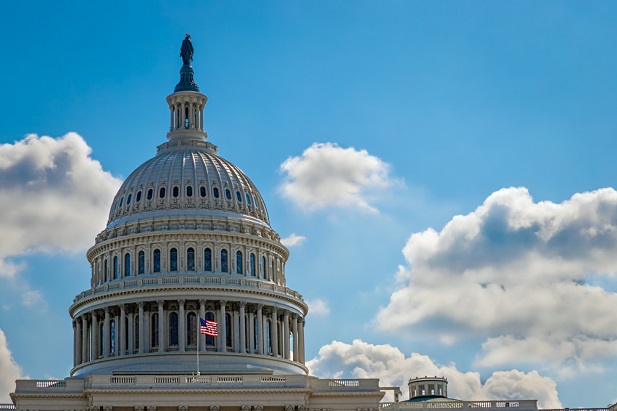 U.S. Capitol. (Source: Shutterstock)
U.S. Capitol. (Source: Shutterstock)
During Tuesday's State of the Union address by President Joe Biden, the term "junk fee" was included in his speech to Congress as he mentioned his support for the CFPB's credit card late fee proposal that was introduced Feb. 1.
Leaders from CUNA and NAFCU were quick to point out that there's more to the story than junk fees and protecting consumers – there's a real risk of the CFPB's proposed rule damaging the credit union industry.
Recommended For You
If finalized, the CFPB proposed rule would enact the following:
- Lower the immunity provision dollar amount for late fees to $8 (this amount is down from $30 for a first-time late payment and $41 for subsequent late payments);
- End the automatic annual inflation adjustment; and
- Cap late fees at 25% of the required minimum payment.
Last week when the proposed rule was made public, the trade groups said the proposal could actually run many credit unions right out of the credit card market, therefore hampering efforts to provide safe and affordable credit for numerous members.
After Biden's comments during his speech Tuesday night, CUNA and NAFCU called for clarification.
 Dan Berger
Dan Berger "President Biden and the CFPB are not giving Americans the full picture of what the credit card late fees proposal will actually mean for their pocketbooks," NAFCU President/CEO Dan Berger said. "Consumers rely on safe, reliable short-term credit to afford daily life. This rule will severely restrict the market for credit cards, making those products harder to qualify for and increasing the cost of all other financial products and services. For Americans with low credit scores or lower incomes, this rule would cripple their ability to achieve any sense of financial security."
In a statement, CUNA President/CEO Jim Nussle said, "The president's use of the term 'junk fee' is overly broad and ignores the needs of low-income and middle-income consumers who depend on these services to resolve short-term financial difficulties. It does not consider the costs involved in providing needed financial services that consumers depend on. Most importantly, consumers must opt-in to having the option of overdraft protection, and the cost to use it. The people who choose to use the service are the people who pay for the service.
 Jim Nussle
Jim Nussle "Credit unions believe in empowering consumers to manage their finances – and this includes giving them the choice to access a variety of services if they need them. Consumers use overdraft protection as a safety net – protecting them from life's challenges."
Nussle continued, "Credit unions are constantly adapting overdraft programs to better address the financial well-being of their members. We work with our members to help address those financial challenges and avoid fees if they choose. Without the option of overdraft protection – people are more likely to turn to predatory lenders, hurting the same people the administration seeks to help."
The public is encouraged to comment on the CFPB's proposed rule. Comments are due in March.
© Touchpoint Markets, All Rights Reserved. Request academic re-use from www.copyright.com. All other uses, submit a request to [email protected]. For more inforrmation visit Asset & Logo Licensing.







